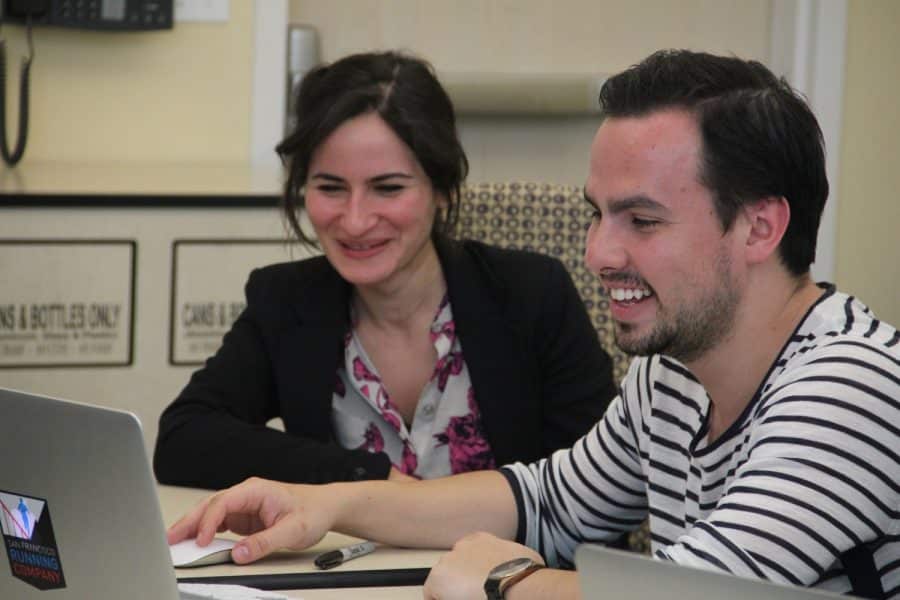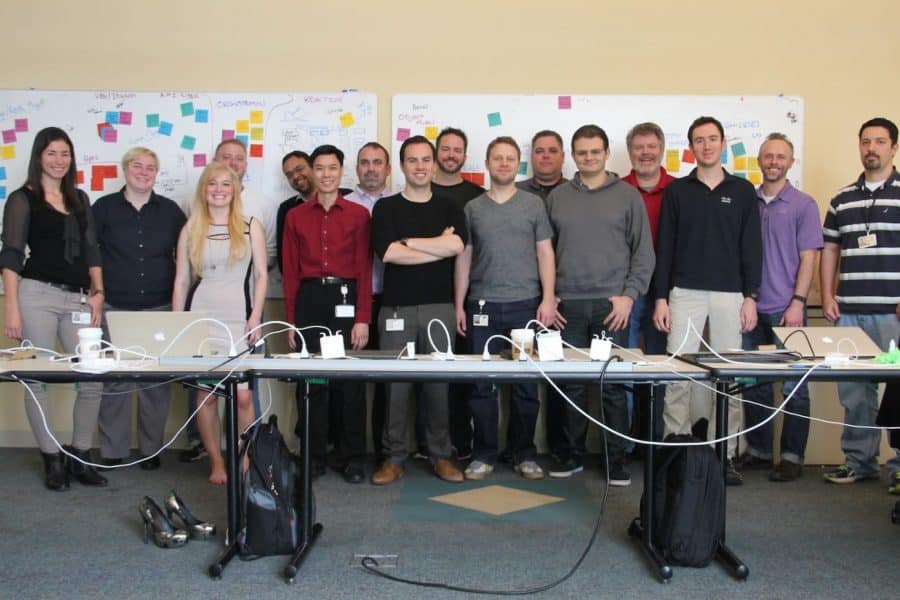15th Anniversary Spotlight: An Exclusive Interview with Andrés Vega
The heart of Book Sprints has always been innovation. Throughout our 15 years, we’ve had the privilege of working with leaders and trailblazers innovating in their own fields. We had the opportunity to speak to one such pioneer in tech – Andrés Vega, who organized a Book Sprint with Cisco that spawned over 20 more in the last 10 years. We spoke to Andres about the “expanding circles” of impact that a Book Sprint has on its participants and the organizations those participants are part of.
Andrés Vega has been working in tech for nearly two decades, having developed experience across both large corporations such as Cisco, VMWare, and also early-stage ventures. Andrés has had substantial participation in the open source community through contributions to the Cloud Native Computing Foundation. More recently, and now again at a startup at venture funded Fianu Labs. He has developed expertise in enhancing secure development in open source and cloud infrastructure. His role extends beyond technical prowess, as he adeptly bridges the gap between technology and organizational dynamics, streamlining workflows in sociatechnical systems.
From One to Twenty: The Impact on Organizations
Andrés first encountered Book Sprints during a time of newness and uncertainty. He shared that he was new to Cisco, new to corporate America, new to the United States – “fresh off the boat,” as Andrés put it. He had been given the demanding responsibility of supporting a complex technology that would majorly shift the usual way of doing things for an established market. The expectation was that this would be met with resistance. “It was new to me,” Andrés said. “It was new to others. I was very disoriented.”
Despite the uncertainty, Andrés was determined to take the bull by the horns. He was researching to build his strategy of how to tackle his challenge when he stumbled upon one of our OpenStack books. “I was captivated,” Andrés said. He was impressed by the speed with which the book was written and released, as well as the number of names on the byline. He hopped on a call with Book Sprints founder Adam Hyde to find out how to get started.
With a drive to prove himself, Andrés lobbied to have the Book Sprint be approved at Cisco. After jumping through many bureaucratic hoops of sign offs and budget approval and convincing the right people to come onboard the project, Andrés was able to get the first Book Sprint with Cisco off the ground in 2014.

Andrés at one of his first Book Sprints with Cisco.
Why did Andrés believe so much in the Book Sprint method to be the solution he was looking for? “It spoke to me on so many dimensions. […] [It was] a really effective tool for building a coalition,” Andrés said. “Among that coalition it’s very equitable, and it’s a platform to produce that shared understanding and that collective knowledge.” With the multiple experts involved in complex technologies, it was important to find a method that made it possible to efficiently collaborate. At a more fundamental level, it was crucial in such a big organization to ensure that shared meanings was consistent and aligned across the experts involved – and Book Sprints gave the perfect opportunity to do just that.
Even more, the Book Sprints method was a fast-track to widespread organizational learning. It allowed participants to take a step back and reflect on the core of their collaborative efforts. It gave context to the work that each moving part was doing, and how these all came together as a whole. Andrés shared:
“[It also] had a lot of impact on going back to like, ‘Hey, what is the problem we’re intending to solve? What was I trying to do?’ It helped equip people with knowledge much sooner, earlier than they would have had.”
After that first Book Sprint in 2014, Cisco went on to do 20 more Book Sprints in the past 10 years. As Andrés says, “It’s a testament that there’s been 20 books written.”

The crew at Cisco during one of many Book Sprints.
After the Book Sprint: The Impact on the Individual
Andrés has since moved on from Cisco, and even organized Book Sprints in other companies he’d gone on to later. He’s been inspired by the way the Book Sprint method assists in the accessibility of knowledge – something that resonated with him personally. “[The] other element that really spoke to me [is that] I don’t have a traditional academic background,” Andrés said. “I’d only like gotten to [this] place because of access to open knowledge or documentation for educational material. So that fueled the drive further to make this accessible to other people.”
More than the impact on the organizations he’s been a part of, Andrés shared with us his belief that it resonated with participants like him on a deeper level. Referencing an essay by Peter Singer called ‘Expanding Circles,’ Andrés said the effect of a Book Sprint is similar to that metaphor.
“And like those expanding circles [of impact], it’s not just myself, but it’s like the people who are doing the Book Sprint and the organizations that we all work for.”
Being part of Book Sprints honed several skills for Andrés that he continues to use in his life. Just before our call with him, he had spent the night helping a friend edit and self-publish a book. “[This] set of skills that I acquired from [Book Sprints] made me so much more sensitive to the creative act,” Andrés said. “[Sensitive to the] toolset or the resources that can help fuel and accelerate creation when you do it with other people.” There are multiple transferable skills that are developed in a Book Sprint, personal outcomes that “the brain retains in different dimensions,” whether that’s writing or facilitating or creating environments conducive to collaboration.
Some of these skills, such as writing, Andrés actually felt were weaknesses that Book Sprints gave him an opportunity to strengthen. He shared, “Beyond the extrinsic value of, yes, you are creating and [something is] being put out for consumption and the world, there’s this intrinsic skills acquisition. […] Writing has been one of my greatest weaknesses throughout my life. But I’ve written like five different books at this point and a lot of other publications. It has upskilled me and has trained that weakness.”
We were honored and grateful to hear that Andrés remains a strong champion of the Book Sprint method. His belief is that Book Sprints “can be a safeguard… to keep propelling collaborative innovation.” In Andrés’ words, “It protects and preserves a lot of the virtues of creativity and creation and collaboration.”
For Andrés, Book Sprints was transformative on multiple levels. It created real, tangible organizational change at Cisco, when he first brought it there. It was transformative for himself as a professional and a person, with the skills and insight each Book Sprint allowed him to harness. Andrés summed it up nicely when he told us at the end that:
“[It is] very near and dear – like [it’s been a] career-defining and even life-defining component, having been part of the Book Sprints family. There’s a lot that radiates from it.”
The heart of Book Sprints has always been innovation. After a decade and a half, we’re proud to share the multiple levels of impact that a Book Sprint echoes through its participants and their organizations. The adventure doesn’t end here – we look forward to innovating in more disciplines and industries for years to come. Ready to be a pioneer in your field? If you are interested in creating transformation with Book Sprints, reach out to us at contact@booksprints.net to get started.
